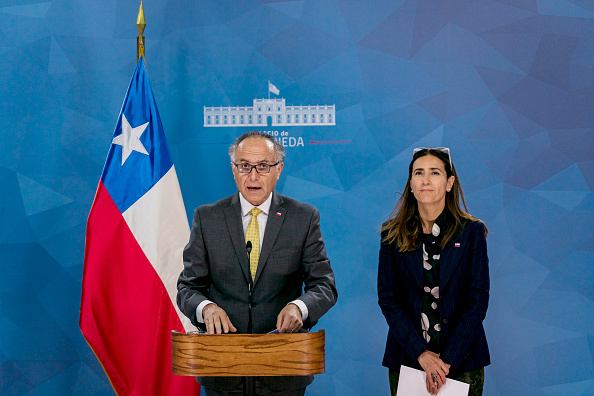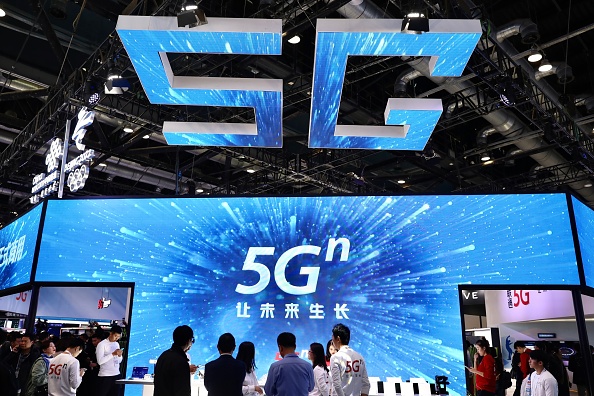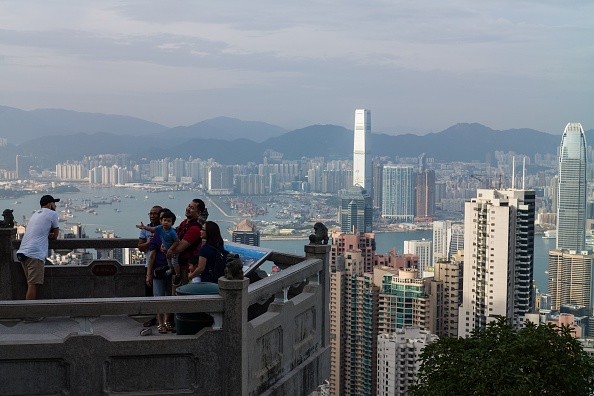
 Don't Hold Your Breath
Don't Hold Your BreathAn interim trade deal in the U.S.-China trade war has been temporarily derailed, after Chile cancelled the Asia-Pacific Economic Cooperation summit originally set for later this month. Presidents Xi Jinping and Donald Trump were expected to sign an interim trade deal on the sidelines of the summit, but ongoing protests across Chile have caused Chilean President Sebastián Piñera to call off the summit. Officials from China and the United States say they still will sign the Phase One agreement, however a new location must be found for the two leaders to meet. According to media reports, Macao and Iowa have been considered as potential sites.
Despite nearing an interim trade deal, Chinese officials are doubtful that a long-term deal is possible while Donald Trump remains in office, unless the U.S. rolls back more of its import tariffs and-- according to some commentators-- its expectations regarding intellectual property rights. Beijing also wants Trump to cancel the new tariffs scheduled for mid-December, which is intended to tax smartphones and toys, among other items. Further complicating matters, Beijing remains adamant not to cede to Washington's biggest trade demands, whereas President Trump is adamant that a deal must be structured around the most difficult concessions.
 The Need for Speed
The Need for SpeedAs China and the US firm up plans for a trade deal, China officially rolled out its 5G network today, giving the country a competitive boost in what some are calling a US-China technological arms race.
China's top mobile carriers-- China Mobile, China Telecom, and China Unicom, activated the newest generation of cellular service today and plan to extend coverage to over 50 cities by the end of the year. Over 10 million subscribers have already pre-registered for service plans.
The ultra-fast network is said to be 100x faster than 4G and is expected to transform modern technology, enabling innovations like driverless cars and remote surgeries. And while providers are offering 5G coverage for as low as 128 yuan ($18) per month, those wishing to connect to network still have to purchase expensive 5G-enabled devices, presenting a potential hurdle to China's tech ambitions.
Another obstacle could be Washington's blacklist, which would block Huawei and other Chinese companies from purchasing American hardware technology. Huawei currently holds a large portion of China's 5G networking contracts, and if the block is put in place, Huawei may have trouble keeping up with the production needed to maintain 5G. Read more about Washington's move to blacklist Huawei from Daniel Ikenson, Director of the Cato Institute's Center for Trade Policy Studies, on China-US Focus.
 Taking a Toll
Taking a TollFive months into Hong Kong's protests, the semi-autonomous city has officially fallen into a recession, dropping by 3.2% in the third quarter. Hong Kong hasn't faced an economic crisis this large since the 2008 financial crisis, and there has been little chance of growth as the U.S.-China trade war has slowed the global economy. Protests continue to disrupt Hong Kong's stability, as public transport shutdowns, road blockages, and security clampdowns take their toll.
Meanwhile, Beijing announced that it would bolster Hong Kong's security by building and improving "a legal system and enforcement mechanism to defend national security in the special administrative regions," according to a Communist Party committee meeting summary. While quite vague in its language, the summary made clear that Hong Kong is ruled by the CCP and that Beijing sees high risks in the road ahead, both domestically and internationally.
Prepared by China-US Focus editorial teams in Hong Kong and New York, this weekly newsletter offers you snap shots of latest trends and developments emerging from China every week, while adding a dose of historical perspective.
- 2019-10-25 Weaponizing Diplomacy
- 2019-10-18 Economic Shudders
- 2019-10-11 A “Big Day of Negotiations”
- 2019-10-04 Birthday Celebrations
- 2019-09-28 A World Split in Two?
- 2019-09-20 Another Round
- 2019-09-13 Olive Branch or Olive Twig?
- 2019-09-07 The Unwinnable War?
- 2019-08-31 “Sorry, it’s the way I negotiate”
- 2019-08-23 Tit for Tat
- 2019-08-17 Slowdown Ahead?
- 2019-08-09 Yuan on the Rocks
- 2019-08-02 Ratcheting Up the Crisis
- 2019-07-26 Playing Defense
- 2019-07-19 “Stain of the Century”
- 2019-07-12 Whichever Way the Wind Blows
- 2019-07-04 A Gentlemen’s Agreement
- 2019-06-28 A Truce on the Horizon?
- 2019-06-22 Three’s A Crowd
- 2019-06-14 Battle for Hong Kong
